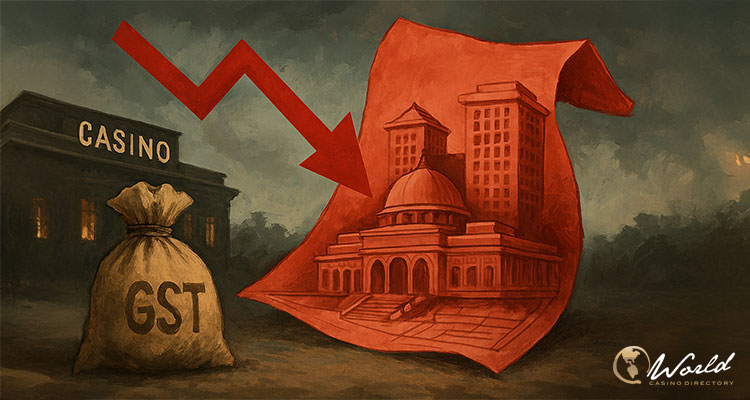Delta Corp, a prominent Mumbai-based gaming and hospitality firm, has announced a temporary halt on its ambitious Rs 2,000-2,500 crore integrated resort-cum-casino township in Goa, India. The decision stems from uncertainty surrounding proposed changes to the Goods and Services Tax (GST) framework, which may significantly impact the viability of the project. The company has stated that the development will remain on hold until there is greater clarity on the tax structure.
Impact of GST Changes on Goa’s Casino Sector
The suspension of the resort project comes at a time when the Indian government is reportedly considering increasing the GST on casinos to 40%, a sharp rise from the current 28%. According to The Times of India, this potential hike has raised concerns within the industry, with Delta Corp’s chairman, Jaydev Mody, stressing the severe consequences such a move would have on the sector. “The 40% GST contemplated will make the entire sector unviable,” Mody said, further explaining that the increase would negatively impact thousands of jobs, tourism in Goa, and the overall revenue generated by the industry.
The integrated resort project, which was to be built near Manohar International Airport in Mopa, was initially scheduled for completion by 2027. The development, spread across 90 acres, was envisioned as a state-of-the-art facility featuring a convention center, hotels, a multiplex cinema, shopping mall, water park, electronic casino, and entertainment facilities aimed at families. Delta Corp had hoped to create approximately 10,000 direct jobs through the resort, making it a key driver for the local economy.
However, the project now faces delays, as it remains tied to the government’s decision on the GST rate. Mody emphasized the uncertainty that the proposed tax hike has brought to the sector, investing in Goa and Sikkim, where Delta operates casinos, untenable under the current climate. The company’s decision to pause the project highlights the broader concerns within the gaming and hospitality industry regarding the government’s tax policy.
In addition to the looming GST issues, the resort project faces significant legal and regulatory challenges. A Public Interest Litigation (PIL) related to the conversion of agricultural land into an Investment Promotion Area for the project is currently pending before the Bombay High Court in Goa. The project has also drawn political opposition, with critics questioning the denotification of agricultural land that was previously part of the Tillari Irrigation Project.
Despite these hurdles, Delta Corp has restructured its operations to focus more effectively on the project. By demerging the Dhargal development into a wholly owned subsidiary under Delta Penland Private Limited, the company aims to streamline its capital-intensive operations and potentially raise funds through equity or debt.
Delta Corp’s Financial Performance Amid GST Uncertainty
Delta Corp continues to face pressure due to regulatory uncertainty, but recent financial results show a degree of resilience. The company reported a 36.1% year-on-year increase in net profit for the first quarter ending June 30, 2025, reaching Rs 29.4 crore. Revenue also grew modestly, rising to Rs 184.7 crore from Rs 178 crore during the same period the previous year. However, earnings before interest, taxes, depreciation, and amortization (EBITDA) declined by 16.2% year-on-year to Rs 39.6 crore, reflecting the challenges the company faces due to regulatory issues.
Mody, however, made it clear that the company would not consider further expansion in Goa or Sikkim unless there was greater certainty regarding the tax framework. “The question of investing in either of the two states does not arise with this uncertainty,” he stated, underscoring the significant risks posed by both the proposed 40% GST hike and the retrospective tax demands from the past.
Licensed casinos, both onshore and offshore, have been a significant contributor to Goa’s tourism and hospitality sectors for over two decades. The casinos attract a large number of domestic and international visitors, benefitting airlines, hotels, retail stores, taxi operators, and local restaurants. However, the future of this industry is now in jeopardy due to the regulatory uncertainty surrounding the tax regime.


